Themed collection Reaction Chemistry & Engineering Emerging Investigators

Reaction Chemistry & Engineering Emerging Investigators 2017
Reaction Chemistry & Engineering Editorial Board Chair Klavs Jensen and Scientific Editors Saif Khan and Ian Baxendale introduce the 2017 Emerging Investigators issue.

React. Chem. Eng., 2017,2, 99-102
https://doi.org/10.1039/C7RE90005H
Continuous flow synthesis of antimalarials: opportunities for distributed autonomous chemical manufacturing
The concept of distributed manufacturing of chemicals is presented and discussed, with specific focus on the context of preparing molecules that can combat the development of geographically-localised resistant strains of infectious pathogens.
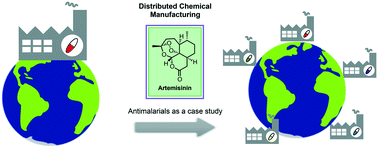
React. Chem. Eng., 2017,2, 281-287
https://doi.org/10.1039/C7RE00034K
Safety assessment in development and operation of modular continuous-flow processes
Improved safety is one of the main drivers for microreactor application in chemical process development and small-scale production.
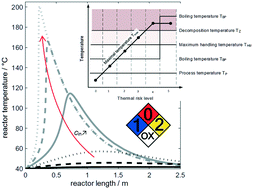
React. Chem. Eng., 2017,2, 258-280
https://doi.org/10.1039/C7RE00021A
A sensitivity analysis of a numbered-up photomicroreactor system
The robustness of a numbered-up capillary photomicroreactor system was evaluated when subjected to common disturbances, such as clogging and light failure.
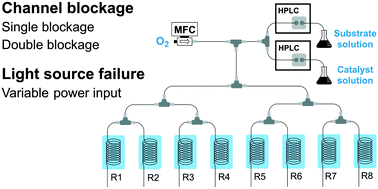
React. Chem. Eng., 2017,2, 109-115
https://doi.org/10.1039/C7RE00024C
Rapid multistep kinetic model generation from transient flow data
SNAr reaction profiles were generated using an automated reactor, collected in less than 3 hours, and allowed accurate estimation of kinetic parameters.

React. Chem. Eng., 2017,2, 103-108
https://doi.org/10.1039/C6RE00109B
Development of a reactor with carbon catalysts for modular-scale, low-cost electrochemical generation of H2O2
Small-scale reactors for H2O2 production that can couple to renewable energy sources would be of great benefit for decentralized water purification.
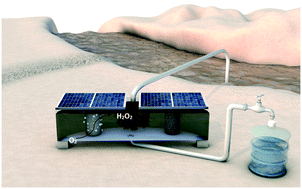
React. Chem. Eng., 2017,2, 239-245
https://doi.org/10.1039/C6RE00195E
Investigation of dynamic surface tension in gas–liquid absorption using a microflow interfacial tensiometer
Dynamic surface tension in gas–liquid absorption is studied using a microflow device.
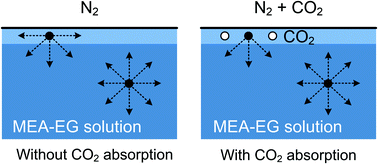
React. Chem. Eng., 2017,2, 232-238
https://doi.org/10.1039/C6RE00191B
Automated reaction progress monitoring of heterogeneous reactions: crystallization-induced stereoselectivity in amine-catalyzed aldol reactions
A prototype solution/slurry automated sampling instrument reveals the origin of diastereoselectivity in this organocatalyzed aldol reaction.

React. Chem. Eng., 2017,2, 226-231
https://doi.org/10.1039/C6RE00211K
Advanced reactor engineering with 3D printing for the continuous-flow synthesis of silver nanoparticles
3D printing has been employed to manufacture advanced reactor geometries based on miniaturised continuous-flow oscillatory baffled reactors (mCOBRs) and they have been applied for the fouling free continuous-flow synthesis of silver nanoparticles with optimal size control.
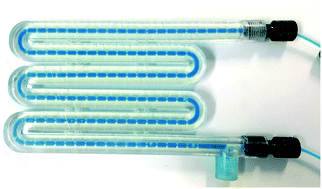
React. Chem. Eng., 2017,2, 129-136
https://doi.org/10.1039/C6RE00210B
Synthesis of narrow sized silver nanoparticles in the absence of capping ligands in helical microreactors
Microtubular helical reactors generate secondary flows promoting the synthesis of mono-sized silver nanoparticles in the absence of capping ligands.

React. Chem. Eng., 2017,2, 116-128
https://doi.org/10.1039/C6RE00202A
Energetics of cellulose and cyclodextrin glycosidic bond cleavage
Thermochemical conversion of lignocellulosic materials for production of biofuels and renewable chemicals utilizes high temperature to thermally decompose long-chain cellulose to volatile organic compounds.
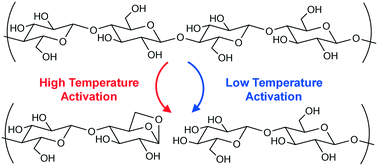
React. Chem. Eng., 2017,2, 201-214
https://doi.org/10.1039/C6RE00176A
Temperature-induced deactivation mechanism of ZnFe2O4 for oxidative dehydrogenation of 1-butene
This paper describes the observation of an irregular decrease in 1-butene conversion during oxidative dehydrogenation over ZnFe2O4 in the production of 1,3-butadiene upon increasing the reaction temperature above 400 °C.
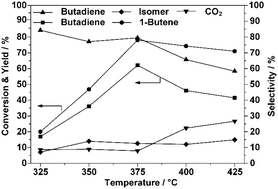
React. Chem. Eng., 2017,2, 215-225
https://doi.org/10.1039/C6RE00179C
Continuous flow hydrogenations using novel catalytic static mixers inside a tubular reactor
Continuous flow reactor for the hydrogenation of organic substrates using novel catalytic static mixers.
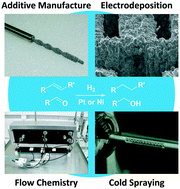
React. Chem. Eng., 2017,2, 180-188
https://doi.org/10.1039/C6RE00188B
Microfluidics with in situ Raman spectroscopy for the characterization of non-polar/aqueous interfaces
The design of microfluidics with in situ Raman spectroscopy is reported in the present work for the investigation of immiscible non-polar/aqueous interactions.
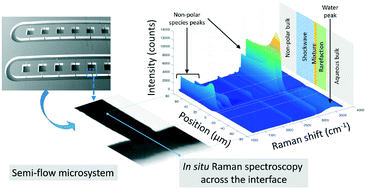
React. Chem. Eng., 2017,2, 189-200
https://doi.org/10.1039/C6RE00177G
Designed porous milli-scale reactors with enhanced interfacial mass transfer in two-phase flows
Designed porous milli-scale reactors with enhanced mass transfer performance and reduced pressure drop compared to conventional packed bed reactors.
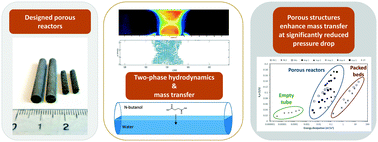
React. Chem. Eng., 2017,2, 137-148
https://doi.org/10.1039/C6RE00185H
Structural and kinetic changes to small-pore Cu-zeolites after hydrothermal aging treatments and selective catalytic reduction of NOx with ammonia
Cu in aged zeolites changes structure during SCR.
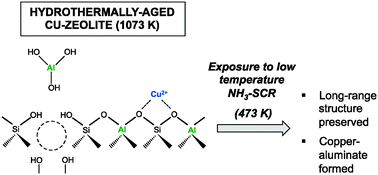
React. Chem. Eng., 2017,2, 168-179
https://doi.org/10.1039/C6RE00198J
Particle activation/deactivation effect in RAFT emulsion polymerization of styrene
A particle activation/deactivation process would play a decisive role in PSD and MWD at very low initiator concentrations.
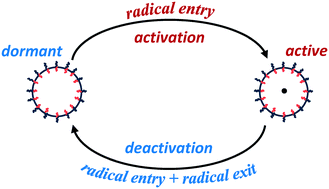
React. Chem. Eng., 2017,2, 159-167
https://doi.org/10.1039/C6RE00168H
Assessing inter- and intramolecular continuous-flow strategies towards methylphenidate (Ritalin) hydrochloride
Development of a scalable continuous-flow process towards enriched threo-methylphenidate (Ritalin) hydrochloride.
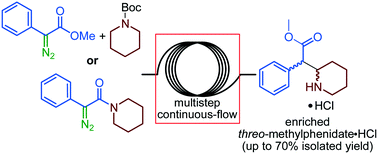
React. Chem. Eng., 2017,2, 149-158
https://doi.org/10.1039/C6RE00184J